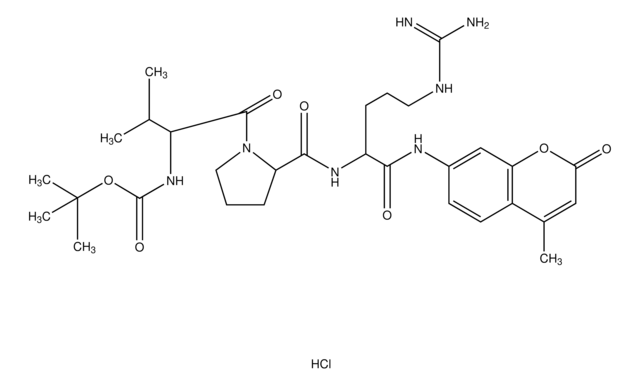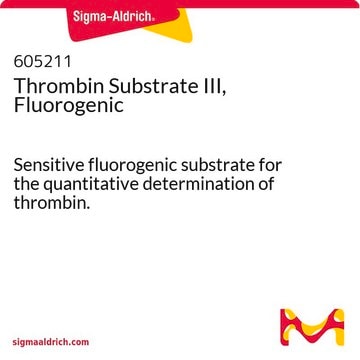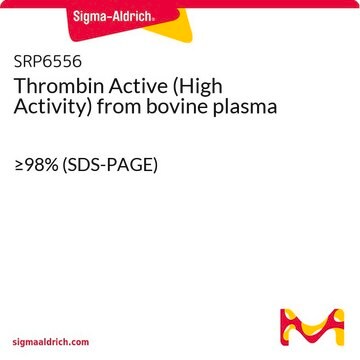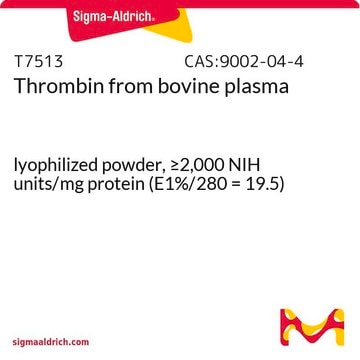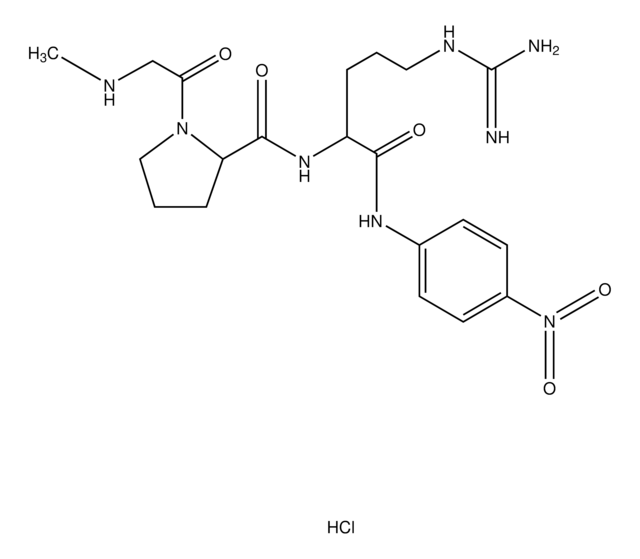All Photos(1)
About This Item
Empirical Formula (Hill Notation):
C31H42N7O7
Molecular Weight:
624.71
UNSPSC Code:
12352202
NACRES:
NA.32
Recommended Products
Assay
≥95% (HPLC)
form
lyophilized
composition
Peptide Content, ≥80%
storage condition
protect from light
storage temp.
−20°C
Amino Acid Sequence
BOC-Val-Pro-Arg-AFC
General description
Thrombin has procoagulant and anticoagulant properties. It also has chemotactic and mitogenic effects. Thrombin triggers the growth of mammalian cells, fibroblasts and macrophage- like tumor cell lines. It regulates brain development. Thrombin plays an important role in hemostasis and thrombosis. It is associated with mast cell degranulation along with the release of histamine and enhances the production of IL-1 (interleukin-1) by activated macrophages. Thrombin stimulates vascular permeability and transendothelial cell migration by neutrophils.
Application
Thrombin is a serine protease involved in the coagulation cascade wherein it converts fibrinogen into fibrin. Thrombin may be detected (assayed) using peptides that contain the VPR sequence such as the fluorogenic substrates Boc-VPR-AFC, Boc-Val-Pro-Arg-7-AMC and the chromogenic substrate Boc-Val-Pro-Arg-pNA. These substrates may also be useful to detect other serine proteases.
Storage Class Code
11 - Combustible Solids
WGK
WGK 3
Flash Point(F)
Not applicable
Flash Point(C)
Not applicable
Certificates of Analysis (COA)
Search for Certificates of Analysis (COA) by entering the products Lot/Batch Number. Lot and Batch Numbers can be found on a product’s label following the words ‘Lot’ or ‘Batch’.
Already Own This Product?
Find documentation for the products that you have recently purchased in the Document Library.
Customers Also Viewed
Multifunctional roles of thrombin
Narayanan S
Annals of Clinical and Laboratory Science, 29(4), 275-280 (1999)
Thrombin functions as an inflammatory mediator through activation of its receptor.
Cirino G, et al.
The Journal of Experimental Medicine, 183(3), 821-827 (1996)
Our team of scientists has experience in all areas of research including Life Science, Material Science, Chemical Synthesis, Chromatography, Analytical and many others.
Contact Technical Service